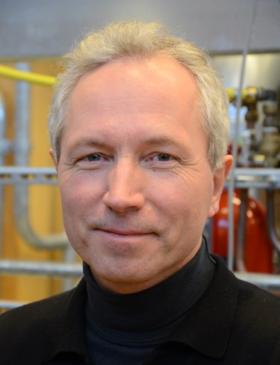Björn Palm receives prestigious medal
By being ahead of his time he and his research team have contributed to reshaping an entire industry. For that, Björn Palm, professor at the Department of Energy Technology, receives the Medal of Science and Technology of the International Institute of Refrigeration, one of the most prestigious prizes in the field of refrigeration.

What does this award mean to you?
”It is a recognition of the work we have done over many years. It also means that we become better known and recognized internationally – although I think we already have a good reputation and are well known – which makes it easier, for example, when we want to form consortia for EU projects.
Right now, there is a transition from an energy system based on fossil fuels to a system with renewable energy sources that generate electricity. This means that even the heating sector is heading towards electrification. Thanks to low priced electricity from hydropower and nuclear power, Sweden has been a leading country in this field, but now this is happening globally. The award is proof that we made the right choice, both as a nation and as a research group. In addition, the prize is a result of the fact that I’ve had skilled co-workers, good students, and, not least, a good start as a successor to Professor Eric Granryd, who was a true forerunner in our research area.”
Your professional achievement spans over 40 years; what makes you most proud today?
”About 20 years ago, we started a project about using natural refrigerants such as propane and isobutane instead of "Freons" as it was called back then. We also did research on how to make the systems more compact so that flammable fluids can be used with good safety. At the time, many people internationally thought it was a strange prioritization. Today, the area is highly topical when the plan is that around 60 million heat pumps will replace gas heaters in apartments and houses around Europe over the next ten years. So we were way ahead of our time!”
What keeps you curious after such a successful career?
”What happens around a bubble that grows at the bottom of the saucepan when you boil eggs? Can a better understanding of this lead to more efficient cooling machines and heat pumps and thus reduce electricity use? Can anyone NOT be fascinated about nature and how it works? The craving to understand drives me in everything.
If you could predict the next significant innovation in your field, what would it be?
”There is a gradual development of existing technology which may not be so revolutionary but still influential. A better understanding of natural phenomena allows us to develop better components and, thus, more efficient systems, for example, heat pumps with a higher coefficient of performance. From time to time, technology shifts also take place. There are many alternative processes for differentiating heat and cold beside the compressor process, which is dominant today. As an example, perhaps new materials will enable efficient magnetocaloric processes. As far as we can see, technological leaps are needed in materials technology, which we have not seen tendencies towards yet.”
Interviewer: Anna Gullers
